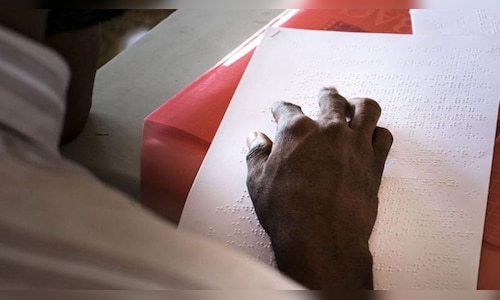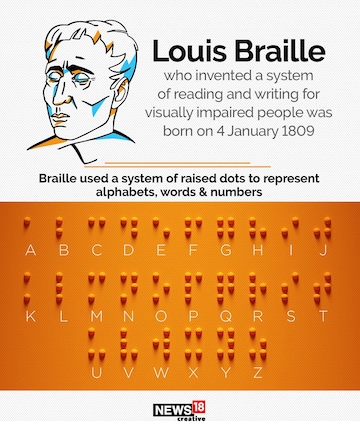
In 2018, the United Nations General Assembly decided to proclaim January 4 as World Braille Day as a tribute to Louis Braille, the visionary behind the braille system.
Importance of Braille
At least 2.2 billion people around the world have a near or distant vision impairment, as per the estimates by the World Health Organization. Nearly one billion or almost half of these cases are the ones where vision impairment could have been prevented or is yet to be addressed.
Braille has been described by the United Nations as a “tactile representation of alphabetic and numerical symbols using six dots to represent each letter and number, and even musical, mathematical and scientific symbols.”

Named after its inventor Louis Braille, it is used by both blind and partially sighted people worldwide to read books and periodicals.
Key facts about Louis Braille
- Louis Braille, inventor of the braille code, was born on January 4, 1809, in France’s Coupvray. When he was three, Braille injured his eye with a sharp tool while he was playing in his father’s shop. Even after the best care, the infection in his eye soon spread to the other one and he was left completely blind.
- According to the National Braille Press, he was a student at the National Institute for Blind Youth in Paris in 1825 and spent a lot of time “poking holes in paper, trying to come up with a more efficient way to represent print letters and numbers factually.” Until then, he and others studied only by tracing raised print letters with their fingers.
- Louis Braille got the inspiration to use the embossed dots to represent letters as he witnessed Charles Barbier, who was a retired artillery officer in Napoleon’s army, demonstrating a note-taking system.
- In 1829, he published his maiden book which was written in Braille. This was a three-volume edition of the “Method of Writing Words, Music, and Plain Songs by Means of Dots, for Use by the Blind and Arranged for Them.”
- After much resistance, the Braille system was finally accepted by the Institute in Paris in 1854, nearly two years after Braille passed away at the age of 43. The world observed Braille’s Bicentennial in 2009.
(Edited by : Sudarsanan Mani)



